Global impacts from improved tropical forages: A meta-analysis revealing overlooked benefits and costs, evolving values and new priorities
DOI:
https://doi.org/10.17138/tgft(1)12-24Abstract
The wider use and improved performance of planted tropical forages can substantially change social, economic and environmental landscapes. By reviewing impact-related studies published in the past two decades, this paper shows how evolving development priorities have influenced the types of impacts being documented. A meta-analysis was used to examine 98 studies according to: (i) breadth of reported effects, as related to development goals of social equity, economic growth and environmental sustainability; (ii) extent of effects, ranging from intermediate to longer-term impacts; and (iii) measurement precision (identification, description or quantification) of impacts.Impacts have been assessed for fewer than half of the documented 118 Mha with improved forages. Although Brazil accounts for 86% of the known planted area, widespread irregular reporting of technology adoption affects accuracy of global estimates. Over 80% of the impact-related studies reported economic effects, while fewer than 20% were quantitative estimates of longer-term economic impacts. Inconsistent valuation methods and assumptions prevented valid summation of total economic impacts. Social effects were reported in fewer than 60% of studies and emphasized household-level outcomes on gender and labor, with most reported effects being non-quantitative. Environmental effects were reported slightly more often than social effects, with recent increases in quantitative estimates of carbon accumulation. Few studies analyzed tradeoffs. Independent reviewers conducted approximately 15% of the studies. Newer development priorities of environmental sustainability, system intensification, organizational participation and innovation capacities require broader approaches to assess impacts. Increased marketing and coordination with development and environmental organizations can generate greater demands for improved forages.
How to Cite
White, D. S., Peters, M., & Horne, P. (2013). Global impacts from improved tropical forages: A meta-analysis revealing overlooked benefits and costs, evolving values and new priorities. Tropical Grasslands-Forrajes Tropicales, 1(1), 12–24. https://doi.org/10.17138/tgft(1)12-24
Downloads
Download data is not yet available.
Downloads
Published
2013-09-15
Issue
Section
IGC 2013 Keynote Papers




